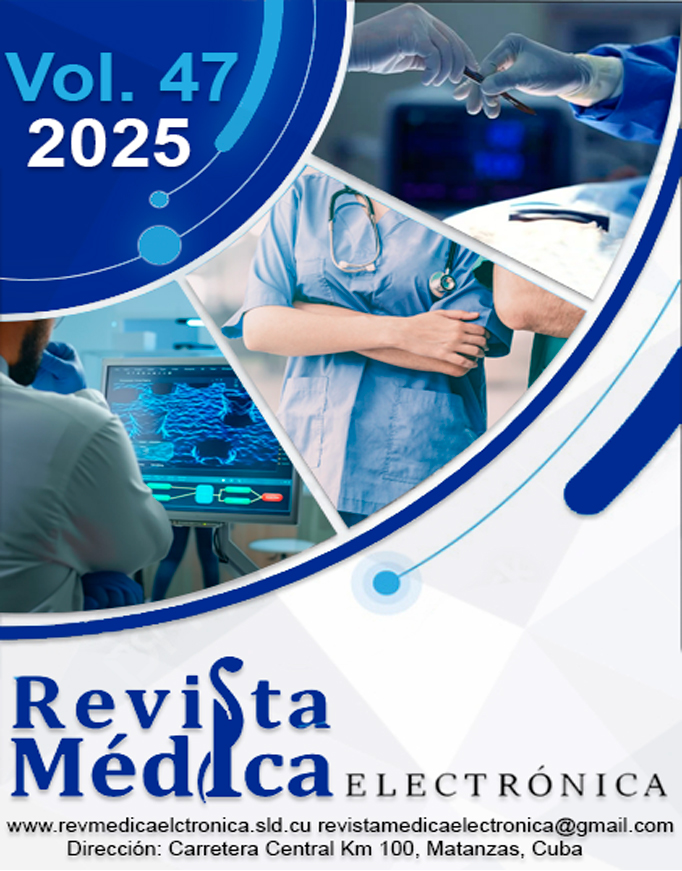Hepatotoxicidad inducida por suplementos herbales: desafíos clínicos, regulatorios y de salud pública
Palabras clave:
efectos colaterales y reacciones adversas relacionados con medicamentos, enfermedad hepática inducida por sustancias y drogas, suplementos dietéticos, trasplante de hígadoResumen
Se aborda la hepatotoxicidad generada por suplementos dietéticos y herbales. El presente artículo tiene como objetivo discutir los aspectos relevantes que fundamentan el diagnóstico y los factores asociados a la hepatitis tóxica. Se resalta la vulnerabilidad del hígado, sumada a la dificultad que presenta el diagnóstico y tratamiento de la patología. Asimismo, se exploran aquellos casos clínicos y de diagnóstico, y se señala que muchos pacientes se recuperan, aunque algunos llegan a necesitar trasplante o enfrentan la muerte. Adicionalmente, se mencionan factores que se asocian a la hepatotoxicidad, como compuestos bioactivos en diversos suplementos más la falta de regulación en su composición. Otras consideraciones clínicas y regulatorias hacen énfasis en la necesidad del mejoramiento en su diagnóstico, regulación y comunicación médico-paciente. Se concluye que es necesario la urgencia de reforzar controles sanitarios, la formación a profesionales, así como la conciencia a los consumidores sobre los riesgos de los suplementos dietéticos y herbales, de manera que se reduzca su consumo y disminuyan los impactos en la salud hepática.
Descargas
Citas
1. Ordoñez Zarama YA, Muñoz Delgado ER, Ruiz Ruiz JA, et al. Diagnóstico de un caso de hepatotoxicidad por fármacos y suplementos herbales en un hospital de Pasto, Colombia. Rev colomb Gastroenterol [Internet]. 2023 [citado 30/04/2025];38(1):65-72. Disponible en: https://revistagastrocol.com/index.php/rcg/article/view/866
2. Fontana RJ, Liou I, Reuben A, et al. AASLD practice guidance on drug, herbal, and dietary supplement-induced liver injury. Hepatology. 2023;77(3):1036-65. DOI: 10.1002/hep.32689.
3. Likhitsup A, Chen VL, Fontana RJ. Estimated Exposure to 6 Potentially Hepatotoxic Botanicals in US Adults. JAMA Netw Open. 2024;7(8):e2425822. DOI: 10.1001/jamanetworkopen.2024.25822.
4. Gurley BJ, McGill MR, Koturbash I. Hepatotoxicity due to herbal dietary supplements: Past, present and the future. Food Chem Toxicol. 2022;169:113445. DOI: 10.1016/j.fct.2022.113445.
5. Frenzel C, Teschke R. Herbal Hepatotoxicity: Clinical Characteristics and Listing Compilation. Int J Mol Sci. 2016;17(5):588. DOI: 10.3390/ijms17050588.
6. Souza-Peres JV, Flores K, Umloff B, et al. Everyday Evaluation of Herb/Dietary Supplement-Drug Interaction: A Pilot Study. Medicines (Basel). 2023;10(3):20. DOI: 10.3390/medicines10030020.
7. National Institute of Diabetes and Digestive and Kidney Diseases. LiverTox: Clinical and Research Information on Drug-Induced Liver Injury [Internet]. Bethesda (MD): National Institute of Diabetes and Digestive and Kidney Diseases; 2012 [citado 30/04/2025]. Disponible en: https://pubmed.ncbi.nlm.nih.gov/31643176/
8. Ballotin VR, Bigarella LG, Brandão ABM, et al. Herb-induced liver injury: Systematic review and meta-analysis. World J Clin Cases. 2021;9(20):5490-513. DOI: 10.12998/wjcc.v9.i20.5490.
9. Huang YS, Chang TT, Peng CY, et al. Herbal and dietary supplement-induced liver injury in Taiwan: comparison with conventional drug-induced liver injury. Hepatol Int. 2021;15(6):1456-65. DOI: 10.1007/s12072-021-10241-3.
10. Woo SM, Davis WD, Aggarwal S, et al. Herbal and dietary supplement induced liver injury: Highlights from the recent literature. World J Hepatol. 2021;13(9):1019-41. DOI: 10.4254/wjh.v13.i9.1019.
11. Halegoua-DeMarzio D, Navarro V. Challenges in herbal-induced liver injury identification and prevention. Liver Int. 2025;45(3):e16071. DOI: 10.1111/liv.16071.
12. Koturbash I, Yeager RP, Mitchell CA, et al. Botanical-induced toxicity: Liver injury and botanical-drug interactions. A report on a society of Toxicology Annual Meeting symposium. Regul Toxicol Pharmacol. 2024;153:105708. DOI: 10.1016/j.yrtph.2024.105708.
13. Koenig G, Callipari C, Smereck JA. Acute Liver Injury After Long-Term Herbal “Liver Cleansing” and “Sleep Aid” Supplement Use. J Emerg Med. 2021;60(5):610-14. DOI: 10.1016/j.jemermed.2021.01.004.
14. Khan H, Reyes JVM, Seen T, et al. Herbal Supplement-Induced Liver Injury: A Case Report. Cureus. 2023;15(1):e33663. DOI: 10.7759/cureus.33663.
15. Gudushauri N, Navarro VJ, Halegoua-De Marzio D. A comprehensive update in herbal and dietary supplement-induced liver injury. Clin Liver Dis (Hoboken). 2024;23(1):e0185. DOI: 10.1097/CLD.0000000000000185.
Publicado
Cómo citar
Número
Sección
Licencia
Derechos de autor 2025 Kevin Felipe Caicedo-Arias, Carlos Alberto Romero-Cuestas, Brian Johan Bustos-Viviescas

Esta obra está bajo una licencia internacional Creative Commons Atribución-NoComercial 4.0.
La misma permite:
• Copiar y redistribuir el material publicado en cualquier medio o formato.
• Adaptar el contenido.
Esto se realizará bajo los siguientes términos:
• Atribuir los créditos de los autores e indicar si se realizaron cambios, en cuyo caso debe ser de forma razonable.
• Uso no comercial.
• Reconocer la revista donde se publica.
Se mantienen los derechos de autoría de cada artículo, sin restricciones.






